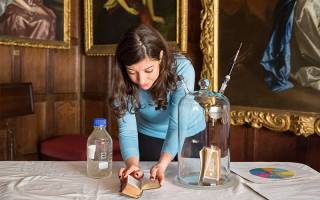Thesis Title: Foreign Cultural Policy through the Work of the Cultural Institutes
Primary supervisor: Dr Kalliopi Fouseki
Secondary supervisor: Professor May Cassar
The intersection between cultural and foreign policy is drawing increasing academic and policy interest. The EU’s Strategy for International Cultural Relations published in 2016 has cast new light on this formerly neglected policy area, which is slowly and steadily becoming a focal point for national governments. Dimitra’s study focuses on the work of the National Institutes for Culture (British Council, Goethe Institut, Institut français etc.) and examines how the agency of the state apparatus manifests in their operations. Should culture be used as an instrument for the attainment of foreign policy goals? How does this instrumentalisation take place? What implications does it have for discourse and practice?
The project examines 6 case studies from Europe (UK, Germany, France, Spain, Sweden and Greece) and compares policy practices across national contexts to come to an understanding of how instrumentalism functions in cultural diplomacy. Perceived ideas about the distance or intimacy of such programmes to government intentions are likely to have an effect in audience engagement and impact. This thesis contributes to the study of governance mechanisms in foreign cultural policy through a cross-case analysis using semi-structured interviews with senior policymakers as data input.
Keywords: cultural diplomacy; cultural relations; foreign cultural policy; Cultural Institutes;
- Publication
Kizlari D., Fouseki, K., 2018. The Mechanics of Cultural Diplomacy: A Comparative Case Study Analysis from the European Context, The Journal of Arts Management, Law, and Society, 48(2), pp.133-147.
- Biography
Dimitra's academic background contains a BA in Archaeology & History of Art and an MA in Museum Studies. She is a Scholar of the Alexander S. Onassis Public Benefit Foundation and the A.G. Leventis Foundation.
 Close
Close


